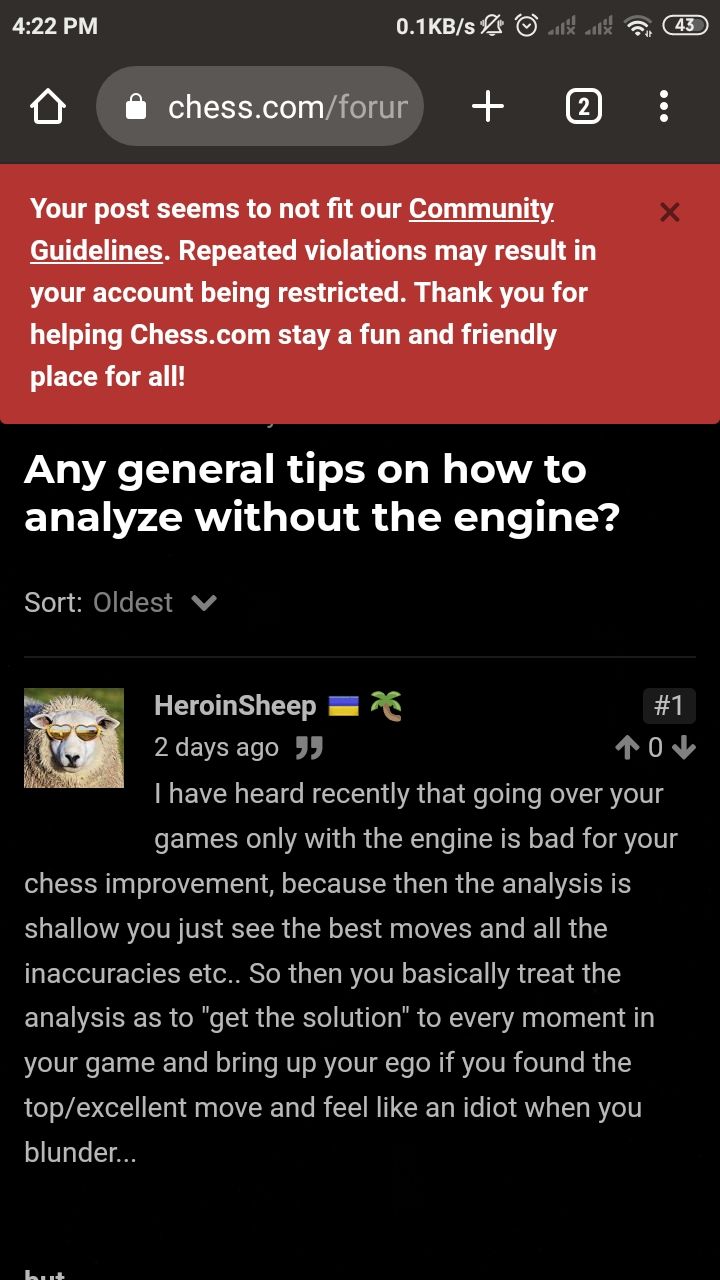Maybe at some higher level this sort of thing is actually good for your game. But I am also of the opinion that analysis without an engine is a waste of time. I stopped watching hanging pawns due to the self-analysis so often being grossly wrong, and I simply don't see the point in it. I play mostly daily, and if I didn't find it then, there's not much chance I'll find it looking it over again. Unless I'm willing to spend weeks figuring out how else to proceed, it ain't gonna happen.
I just looked again at a game review of one of mine, worst blundering game I've had in maybe a year. The recommended continuations are nearly impossible for me to see. One in particular is 14 moves deep, isn't forcing, and supposedly was best. Well, I DID look at the first moves it recommended, but there was no way I was going down that line. What am I supposed to learn from that?










I have heard recently that going over your games only with the engine is bad for your chess improvement, because then the analysis is shallow you just see the best moves and all the inaccuracies etc.. So then you basically treat the analysis as to "get the solution" to every moment in your game and bring up your ego if you found the top/excellent move and feel like an idiot when you blunder...
but ...
I tried to analyse and annotate some of my games (30+20 Classical) without looking at the engine at all in any moment. It felt really nice, but I showed it to a 2100 he was like "bro you missed a million tactics during the game and also in the analysis. What you annotated as your opponent's blunder was actually probably the best move.. you threw here, here, here and there"... etc
So.. for us internet generation never formally trained patzers... How do you improve your own analyzing skills and not just look at the game going "hmm, looks logical.." about every move?... I did find some nice lines btw but I can assume most of them overlooked a ton of stuff, just like in the game itself...
So please give tips on self analysis! Thx